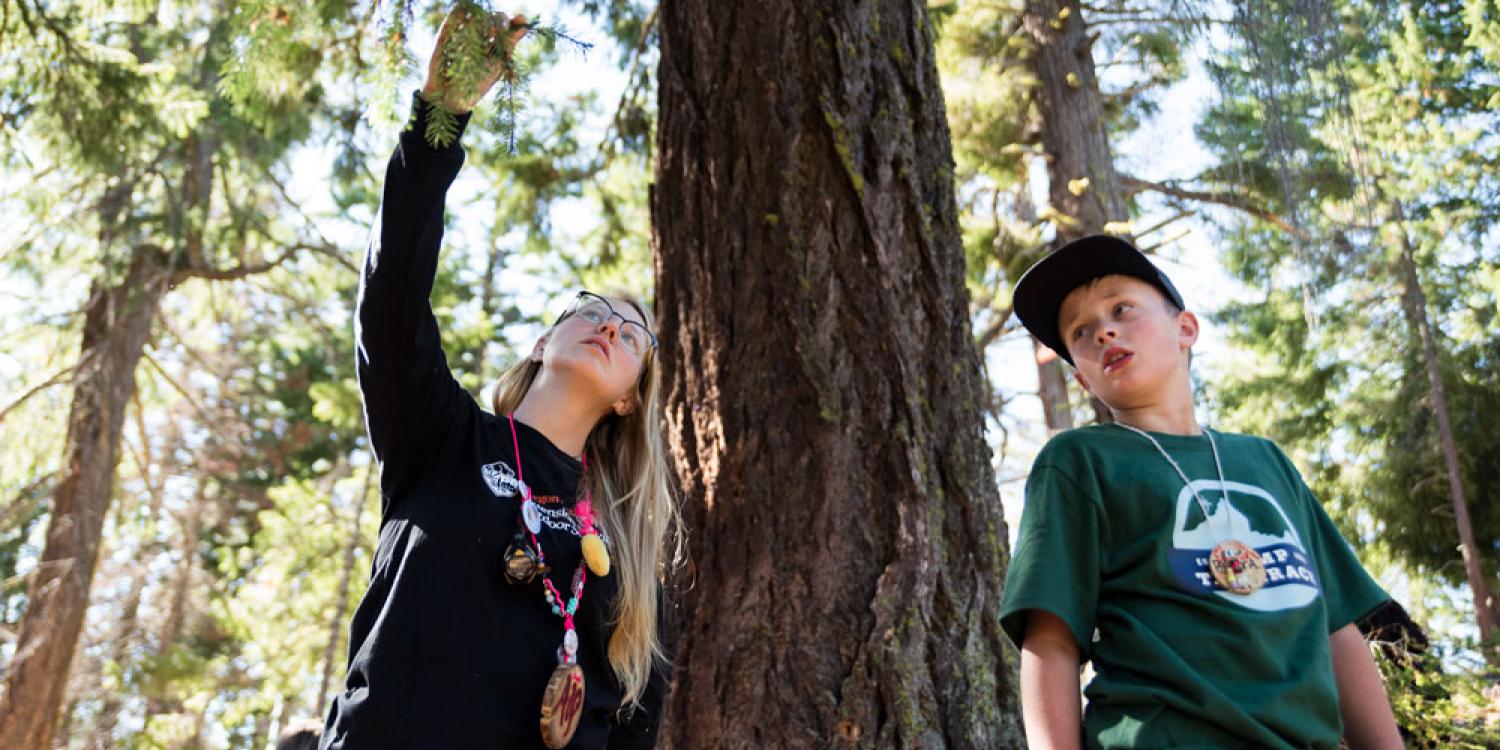
Outdoor School is a transformative, immersive experience that instills environmental literacy and positive learning behaviors in students. It also encourages a belief that Oregon is a special place, with ecosystems they can enjoy and protect. The Oregon State University Extension Service is a trusted partner with the state and with local school districts for administering Outdoor School.
As entrusted by voters, directed by Oregon law, and with input from an advisory committee, Extension provides fiscal, programmatic and administrative responsibility for the program, which currently serves Oregon fifth and sixth grade students. Extension works in collaboration with school districts, partners and communities to support and grow the statewide Outdoor School program, building on a legacy that began in 1966.
The OSU Extension Service Outdoor School Program, created in 2017, crafted the program’s mission and vision, which is grounded in equity, diversity, access and inclusion. These values are fundamental to the program and its work. To equitably include all students in outdoor school, the Extension Outdoor School program must continuously work with outdoor school stakeholders to listen to and respond to the specific needs in every community in Oregon. Oregon’s outdoor schools must remain flexible and adapt and adjust their programs, outreach, curriculum and materials to meet their communities’ needs.
The Outdoor School program responded to the pandemic shutdown in 2020 with two grant programs that were based on its commitment to equity, diversity, accessibility and inclusion. The program funded 13 grants that focused on accessibility-based site improvements and enhancements to outdoor school facilities. Additionally, the program approved 11 other grants to outdoor school providers to increase and expand the equity, accessibility, and inclusivity of the provider’s programming. The program's total grant contribution for these improvements totaled $5.174 million.
Oregon’s diverse outdoor school programs are tailored to its many distinct ecoregions and the goals of schools, districts and outdoor school providers. No single curriculum could serve the needs of all outdoor school programs in Oregon. Therefore, Extension Outdoor School provides a wide variety of resources that schools, districts and outdoor school providers can use and incorporate into their programs.
For example, the program's Instructional Resource Self-Evaluation Tool supports educators in thinking critically about their programs and sites and in updating their curriculum to build on their strengths, and meet their communities’ unique needs.
Because Indigenous peoples’ cultures and histories are essential to outdoor school education, Outdoor School Director Spirit Brooks, and Leilani Sabzalian, an associate profeesor in the College of Education at the University of Oregon, launched "Critical Orientations: Indigenous Studies and Outdoor Education." This self-paced, online course engages educators in analyzing how outdoor education and outdoor school curricula include and represent Indigenous peoples and knowledge. It also supports educators by showing them new methods and strategies to frame curricula in culturally responsive ways.